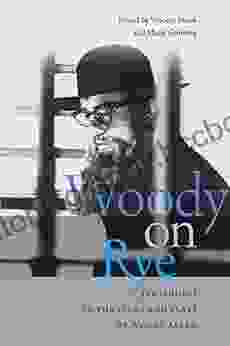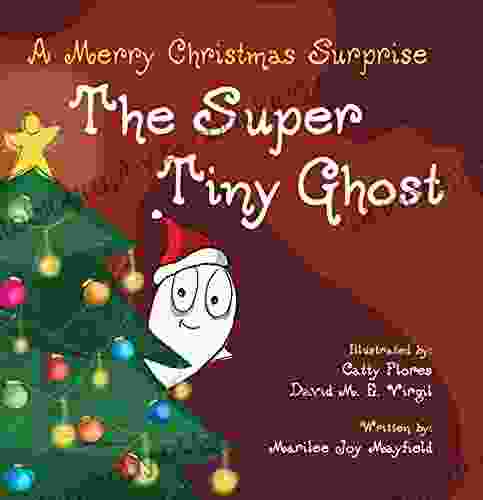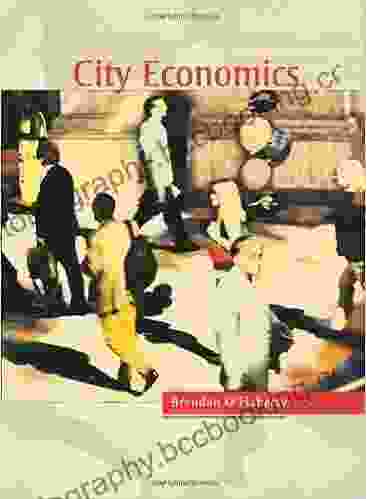Jewishness In The Films And Plays Of Woody Allen: Brandeis In American Jewish

Woody Allen, the celebrated filmmaker and playwright, has captivated audiences worldwide with his witty, introspective, and often deeply personal works. Throughout his prolific career, Allen has consistently explored themes of Jewishness, probing the complexities of identity, faith, and the human condition within the context of American Jewish culture.
4.7 out of 5
| Language | : | English |
| File size | : | 1632 KB |
| Text-to-Speech | : | Enabled |
| Screen Reader | : | Supported |
| Enhanced typesetting | : | Enabled |
| Word Wise | : | Enabled |
| Print length | : | 333 pages |
Jewish Roots and Cultural Identity
Born Allan Stewart Konigsberg to a Jewish family in Brooklyn, New York, Allen's upbringing instilled in him a strong sense of Jewish identity. His family's experiences, including his father's unemployment during the Great Depression, shaped his early worldview. Allen's keen observation of Jewish life and customs is evident in many of his films and plays, which often feature Jewish characters and settings.

In his 1980 film "Stardust Memories," a group of filmmakers gather at a resort for a retrospective of their work. The film's protagonist, Sandy Bates, a filmmaker loosely based on Allen himself, struggles with issues of identity and the artistic expression of his Jewish heritage. He grapples with the expectations placed upon him as a Jewish artist and the desire to transcend cultural labels.
Humor and the Absurdity of Life
Allen's works are known for their witty and often absurdist humor. He uses comedy as a lens through which to explore philosophical and existential questions, including the nature of human existence and the search for meaning in a seemingly meaningless world. His Jewish upbringing undoubtedly influenced this comedic outlook.
Jewish humor has a long tradition of self-deprecation and finding the humor in life's absurdities. Allen's films and plays embrace this tradition, using humor to highlight the paradoxes and contradictions of modern life. In his 1977 film "Annie Hall," for instance, the title character, played by Diane Keaton, delivers a memorable monologue about her inability to make a commitment to her neurotic boyfriend, Alvy Singer, played by Allen.
Annie's speech is a humorous meditation on the complexities of love and relationships, but it also touches on deeper existential themes. She observes the absurdity of trying to find a perfect partner in an imperfect world, a sentiment that resonates with many viewers regardless of their cultural background.
Existential Angst and the Search for Meaning
Although Allen's works are often tinged with humor, they also grapple with serious philosophical and existential questions. His characters frequently confront issues of mortality, the meaning of life, and the search for purpose. These themes are particularly evident in his more dramatic works, such as his 1989 film "Crimes and Misdemeanors."
In "Crimes and Misdemeanors," Allen explores the moral and ethical dilemmas faced by Judah Rosenthal, an ophthalmologist who commits a murder. Through Judah's struggle, Allen probes questions of guilt, redemption, and the nature of good and evil. The film's philosophical underpinnings reflect the influence of existentialist thinkers like Jean-Paul Sartre and Albert Camus.
Psychoanalysis and the Inner Life
Woody Allen's films and plays frequently delve into the realm of psychoanalysis, exploring the complexities of the human psyche. He uses psychoanalysis as a tool to dissect characters' motivations and desires, revealing their inner conflicts and anxieties. Many of his characters undergo therapy, providing a window into their psychological makeup.
In his 1972 film "Play It Again, Sam," for instance, the protagonist, Allan Felix, a film critic played by Allen, seeks therapy to deal with his obsessive infatuation with Humphrey Bogart. Through his therapy sessions, Allan gains insights into his own psyche, his relationship with women, and the nature of love.
Social Commentary and the American Jewish Experience
Woody Allen's works also provide incisive social commentary on American Jewish life and culture. He skewers the superficiality of modern society and exposes the hypocrisies and contradictions of the American Dream. His characters often grapple with issues of assimilation, belonging, and alienation within the wider American society.
In his 1979 film "Manhattan," Allen portrays a world of intellectuals and artists who embark on various romantic entanglements. The film explores themes of love, relationships, and the search for meaning in a modern, urban setting. However, it also provides a glimpse into the lives of upper-class American Jews, their aspirations, and their anxieties.
Allen's films and plays have had a profound impact on American Jewish culture, reflecting the diversity and complexity of the Jewish-American experience. His works challenge stereotypes, provoke thought, and offer a unique perspective on the human condition.
Woody Allen's films and plays stand as a testament to his artistic genius and his deep understanding of the human condition. Through his exploration of Jewishness, Allen provides a mirror to American society, reflecting its values, its anxieties, and its search for meaning. His works continue to captivate audiences worldwide, offering laughter, introspection, and a profound exploration of the human experience.
4.7 out of 5
| Language | : | English |
| File size | : | 1632 KB |
| Text-to-Speech | : | Enabled |
| Screen Reader | : | Supported |
| Enhanced typesetting | : | Enabled |
| Word Wise | : | Enabled |
| Print length | : | 333 pages |
Do you want to contribute by writing guest posts on this blog?
Please contact us and send us a resume of previous articles that you have written.
 Book
Book Novel
Novel Page
Page Chapter
Chapter Text
Text Story
Story Genre
Genre Reader
Reader Library
Library Paperback
Paperback E-book
E-book Magazine
Magazine Newspaper
Newspaper Paragraph
Paragraph Sentence
Sentence Bookmark
Bookmark Shelf
Shelf Glossary
Glossary Bibliography
Bibliography Foreword
Foreword Preface
Preface Synopsis
Synopsis Annotation
Annotation Footnote
Footnote Manuscript
Manuscript Scroll
Scroll Codex
Codex Tome
Tome Bestseller
Bestseller Classics
Classics Library card
Library card Narrative
Narrative Biography
Biography Autobiography
Autobiography Memoir
Memoir Reference
Reference Encyclopedia
Encyclopedia Ben Corbett
Ben Corbett Ben Miller
Ben Miller Bella Brownley
Bella Brownley Bernd S Wolff
Bernd S Wolff Botros Rizk
Botros Rizk Bob Trueman
Bob Trueman Bill Nowlin
Bill Nowlin Bernardine Evaristo
Bernardine Evaristo Bill Moeller
Bill Moeller Barbara Russell
Barbara Russell Betty Reynolds
Betty Reynolds Bren Smith
Bren Smith Bernard A Chavis
Bernard A Chavis Barry Robinson
Barry Robinson Ben Crawford
Ben Crawford Benjamin Gomes Casseres
Benjamin Gomes Casseres Bertolt Brecht
Bertolt Brecht Bernard Levine
Bernard Levine Brad Thor
Brad Thor Bestwriters Club
Bestwriters Club
Light bulbAdvertise smarter! Our strategic ad space ensures maximum exposure. Reserve your spot today!
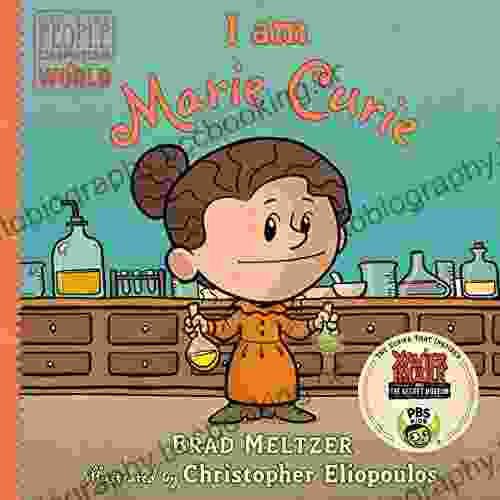
 Glen PowellInspiring Lives: Am Marie Curie - A Pioneer's Journey Towards Extraordinary...
Glen PowellInspiring Lives: Am Marie Curie - A Pioneer's Journey Towards Extraordinary...
 Langston HughesUnveiling the Enchanting Charm of Nan Bonnie Gillespie: A Literary Journey...
Langston HughesUnveiling the Enchanting Charm of Nan Bonnie Gillespie: A Literary Journey...
 Patrick RothfussUnlock Pathophysiology with Patho Phlash Flash Cards: The Ultimate Guide for...
Patrick RothfussUnlock Pathophysiology with Patho Phlash Flash Cards: The Ultimate Guide for... Robert FrostFollow ·16.4k
Robert FrostFollow ·16.4k Cade SimmonsFollow ·12k
Cade SimmonsFollow ·12k David BaldacciFollow ·15.8k
David BaldacciFollow ·15.8k Isaiah PowellFollow ·2.5k
Isaiah PowellFollow ·2.5k Angelo WardFollow ·19.3k
Angelo WardFollow ·19.3k José SaramagoFollow ·18.6k
José SaramagoFollow ·18.6k Alec HayesFollow ·15.6k
Alec HayesFollow ·15.6k Deion SimmonsFollow ·16.5k
Deion SimmonsFollow ·16.5k
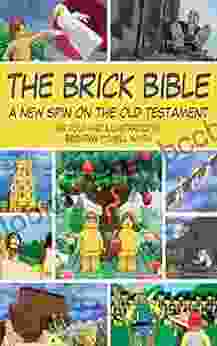
 Alex Foster
Alex FosterRediscover the Old Testament with a Captivating Graphic...
Prepare to embark on an extraordinary...

 Ross Nelson
Ross NelsonThe Christmas Story: The Brick Bible for Kids
LEGO® Bricks Meet the...
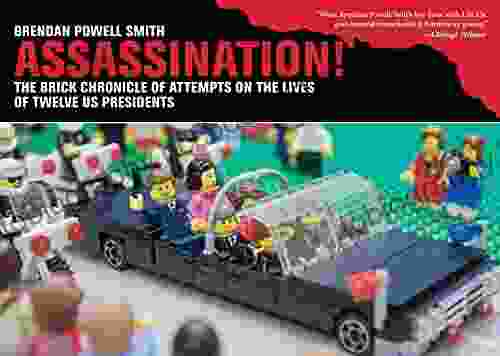
 Anton Chekhov
Anton ChekhovUnveiling the Hidden History: The Brick Chronicle of...
In the annals of American history, the...

 Blake Bell
Blake BellOptions Trading Crash Course: A Comprehensive Guide to...
In the fast-paced and...
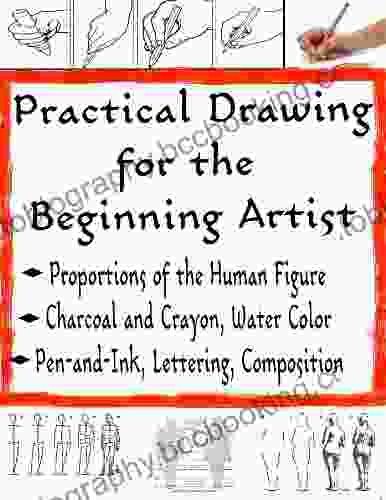
 Percy Bysshe Shelley
Percy Bysshe ShelleyUnlock Your Artistic Potential with "The Practical...
The Indispensable Handbook for...
4.7 out of 5
| Language | : | English |
| File size | : | 1632 KB |
| Text-to-Speech | : | Enabled |
| Screen Reader | : | Supported |
| Enhanced typesetting | : | Enabled |
| Word Wise | : | Enabled |
| Print length | : | 333 pages |


